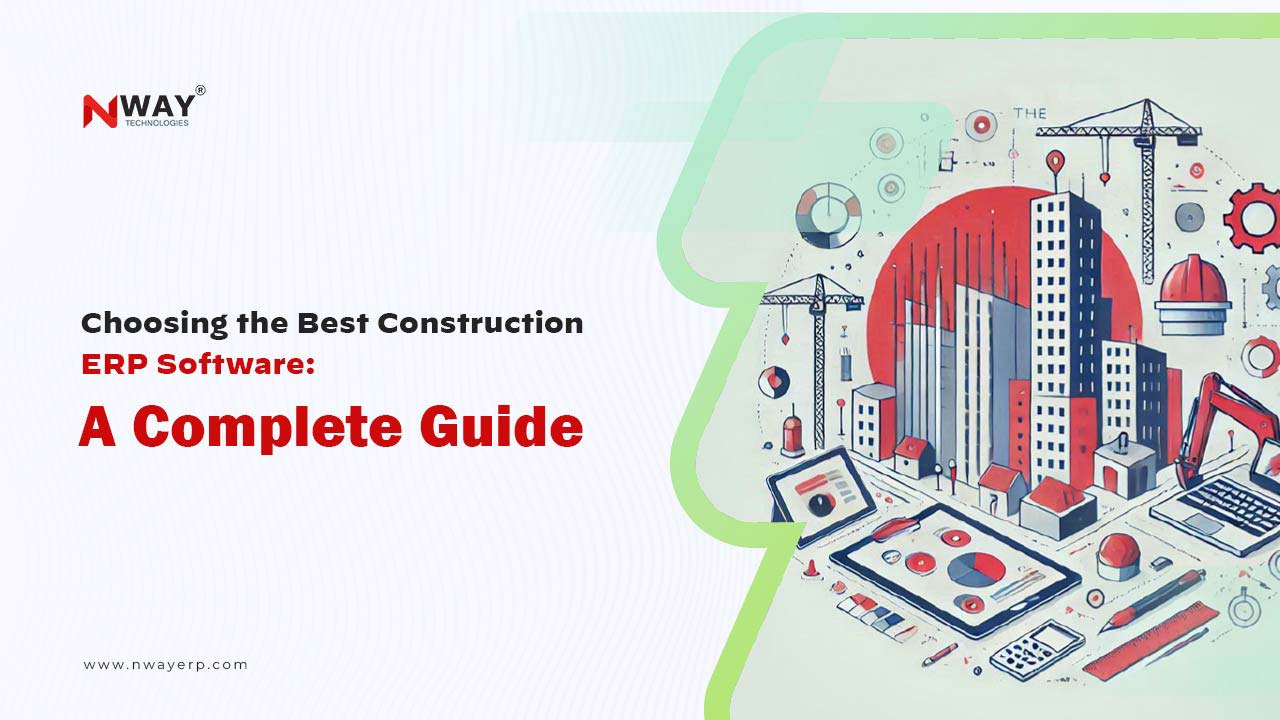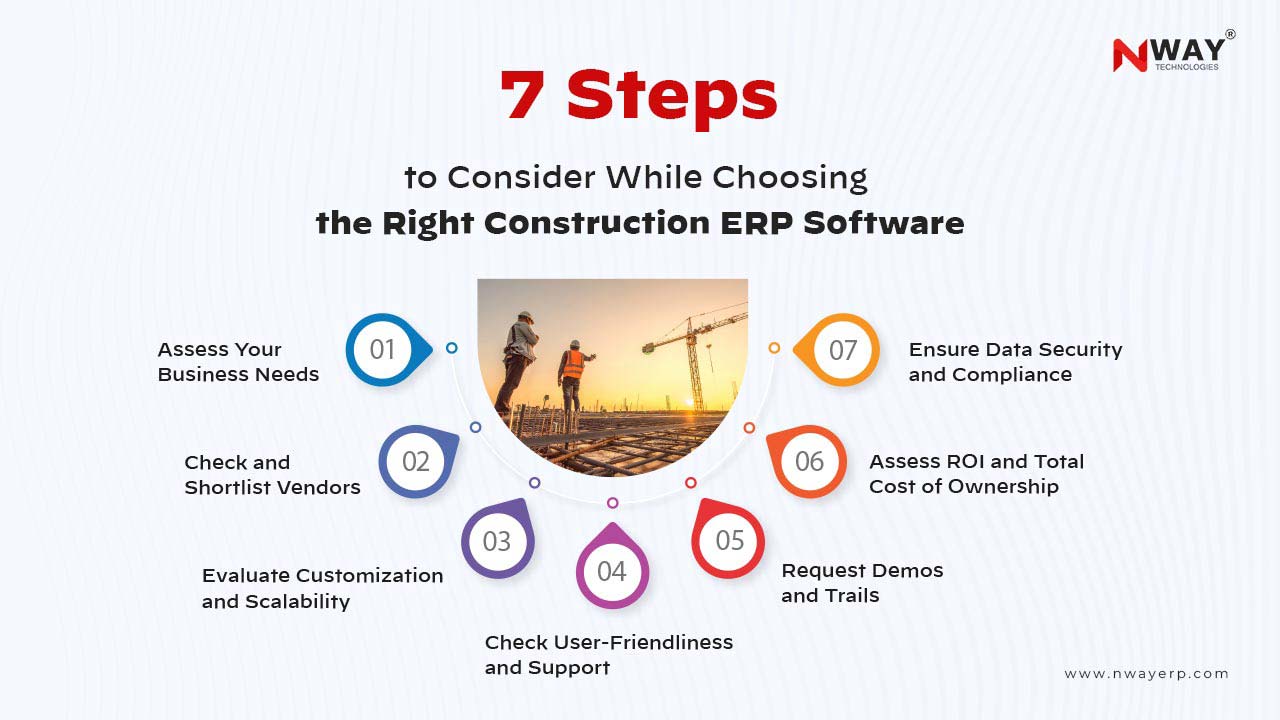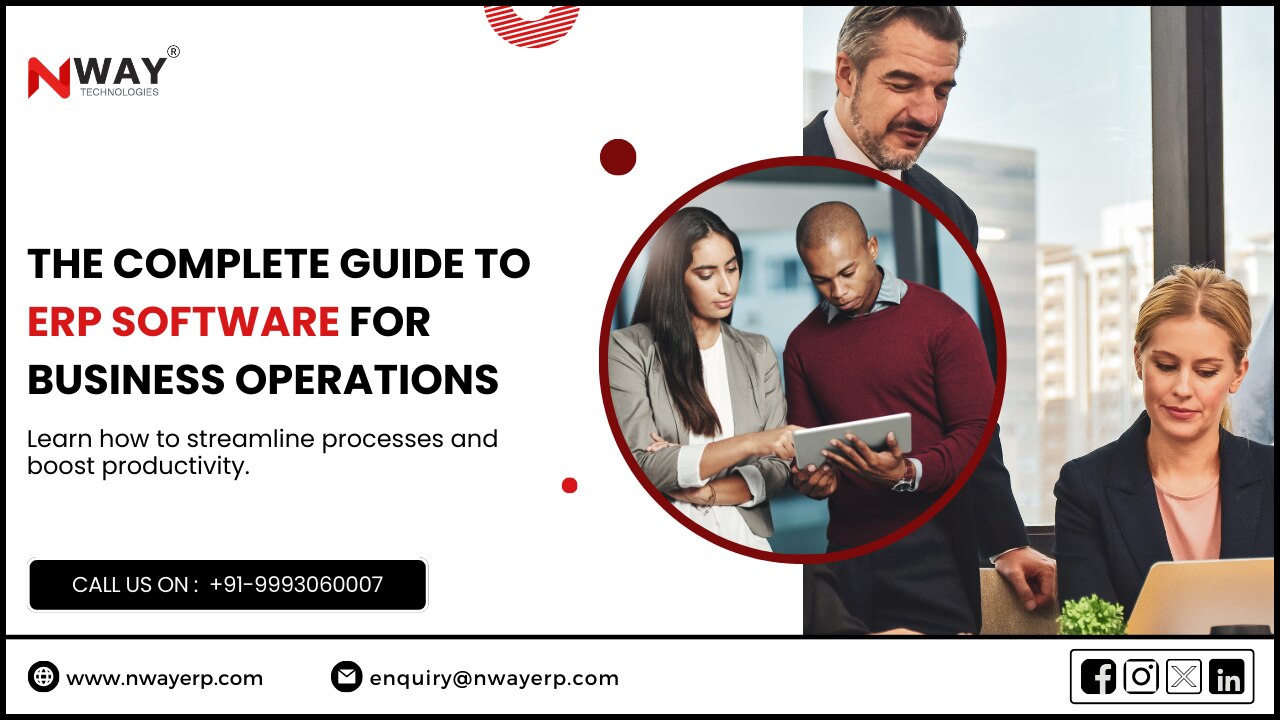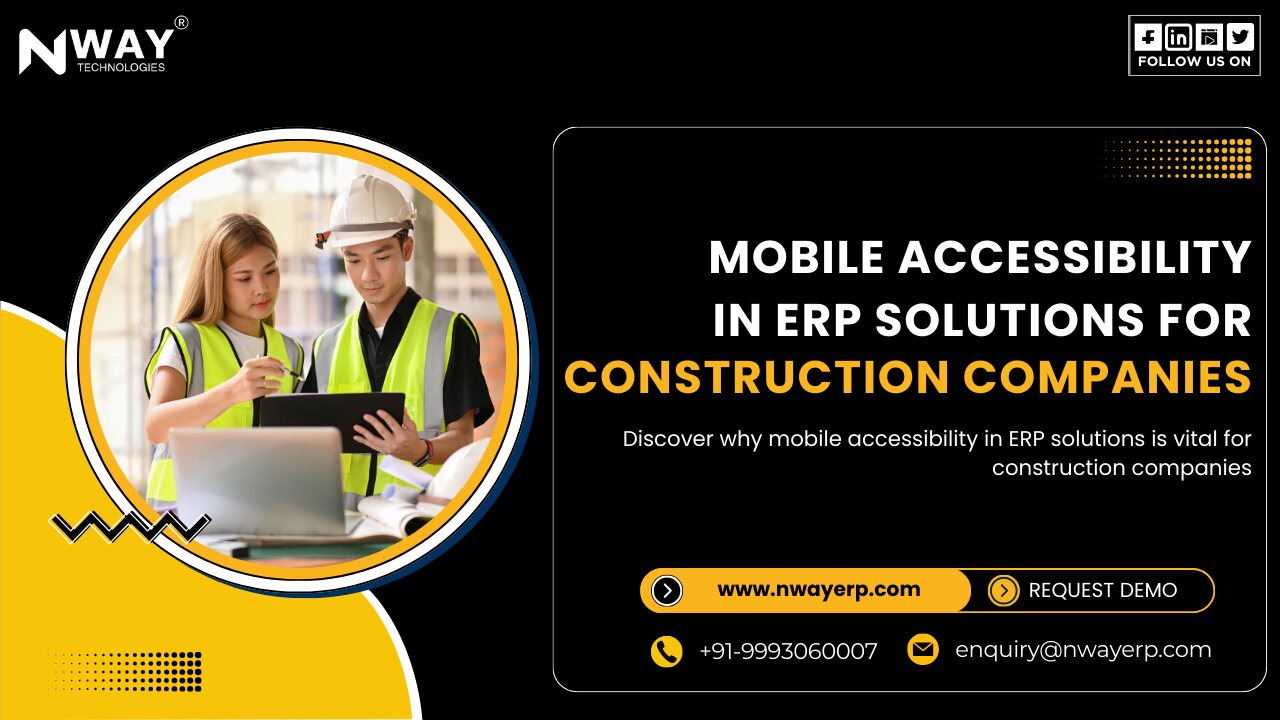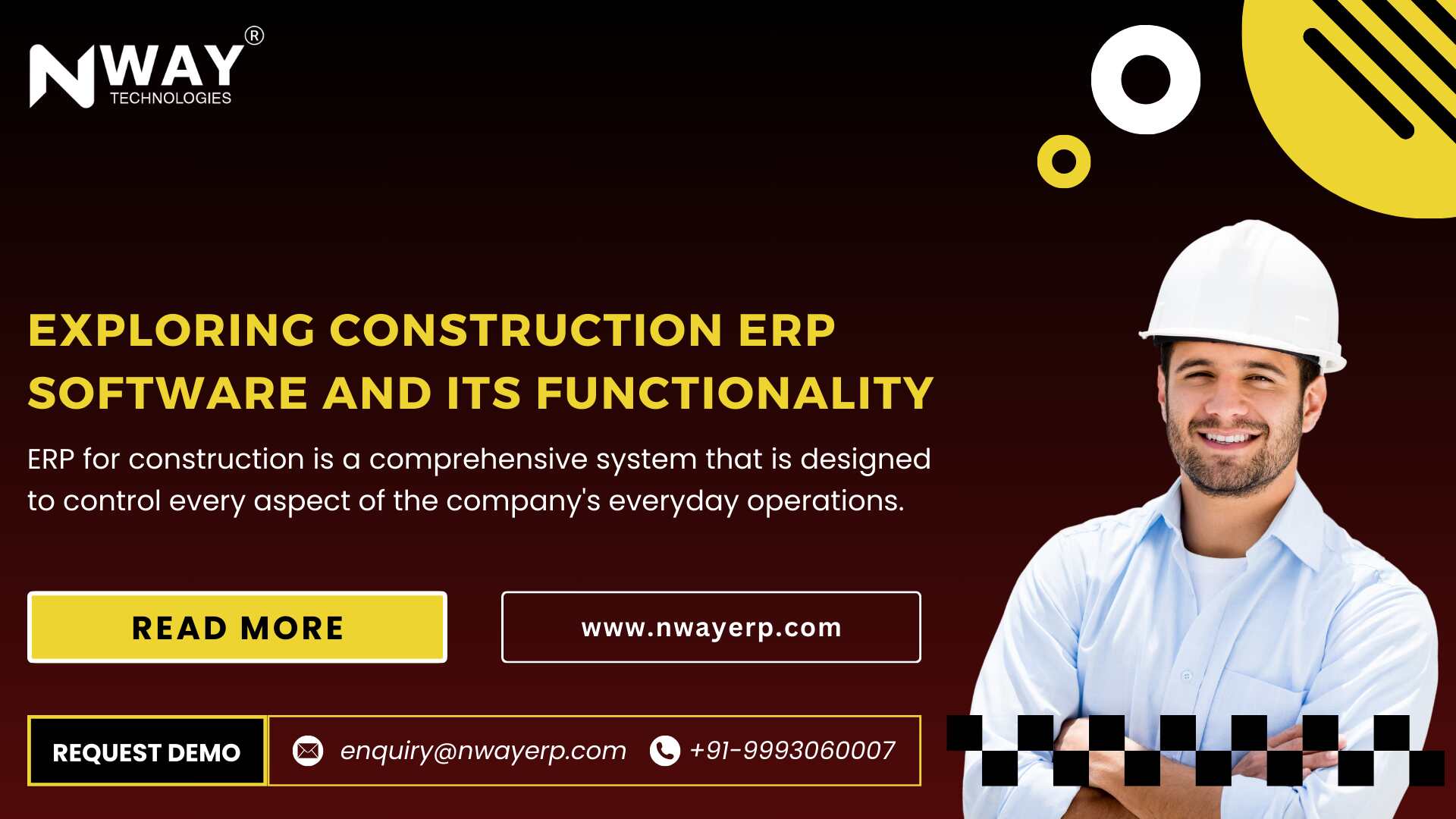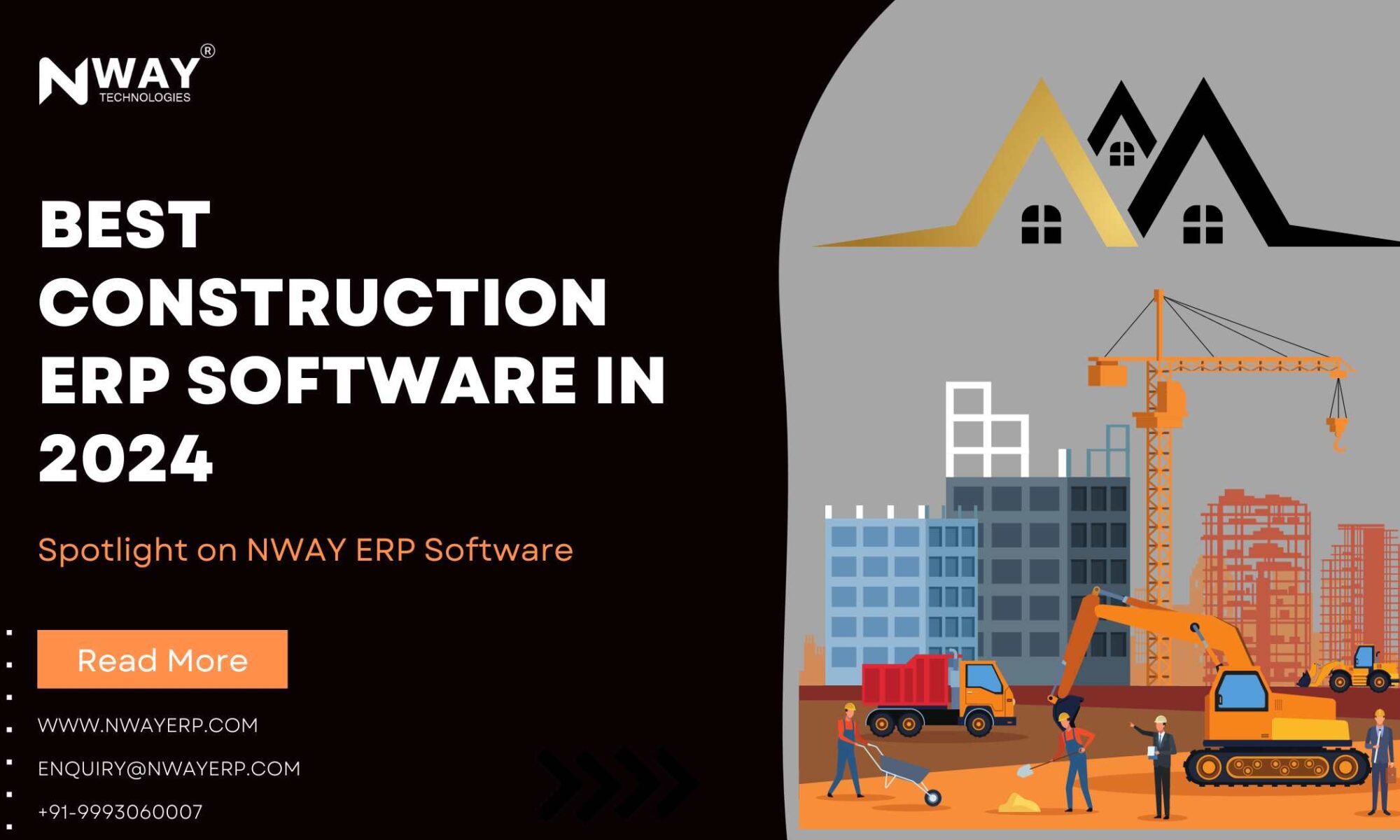The construction industry is vast and needs precision, efficiency, and cost-effectiveness at every stage. A good construction ERP software can help businesses stay competitive and manage all their operations efficiently. However, with numerous options available, choosing the right ERP software is a daunting task.
Read this blog and walk through the critical factors that should be considered while choosing the best ERP software to streamline your business and construction processes.
Key Takeaways:
- Introduction
- Importance of ERP for Construction Companies
- Key Features of Good Construction ERP Software
- Steps to Consider while Choosing Construction ERP Software
- Conclusion
Importance of ERP for Construction Companies
Construction projects involve complex operations like materials, manpower, machinery, and more. An ERP system provides efficient management of all these resources resolving all the major challenges like:
Fragmented Data: Siloed data across departments leading to errors and mismanagement.
Cost Overruns: Inefficient planning & tracking and cost analysis can result in cost overruns.
Delays: Ineffective communication and scheduling issues delay the projects in unexpected ways.
The right construction ERP software centralizes data, automates processes, and provides real-time insights, enabling better decision-making, improved efficiency, and increased profitability.
Key Features of an Effective Construction Software
Choosing a good construction ERP software is essential, prioritize these features that can help you streamline construction operations effectively.
01. Project Management
The project management module provides real-time tracking of project milestones and budgets. It also allocates all the resources for efficient planning.
02. Cost Estimation and Budgeting
Choosing the right ERP software enables accurate cost estimation avoiding overruns, it also involves various tools for budget management and effective analysis.
03. Procurement Management
Procurement operations are also one of the most important operations for any construction company. Construction ERP software provides automated material requisition and purchase order management. It also provides effective vendor management and contract tracking.
04. Inventory Management
There are various locations for multiple projects in the construction industry specifically in road, highway, or bridge construction. It is important to track and manage inventory. A good ERP software provides real-time monitoring of inventory levels, and maintaining scheduling for machinery and equipment.
05. Accounting and Financial Management
Managing finances i.e., balancing the expenses, and costs, and analyzing profits is necessary. The right ERP software provides integration of accounts payable, receivable, and payroll. It also provides comprehensive financial reporting and compliance management.
06. Document Management
There are a bulk of documents that need to be managed in any construction company. ERP software provides a centralized library to manage and store all the documents, contracts, blueprints, and project documents. It also provides version control to avoid duplication and errors.
07. Mobile and Cloud Capabilities
The modern generation is quite busy, they need things more easily accessible. So the ERP software for construction you choose must provide remote access to protect data for field teams. It also needs to offer scalability and flexibility for cloud-based solutions.
08. Integration with Other Tools
Integration with other tools is very important in the construction of ERP software. It should provide compatibility with third-party integrations like WhatsApp integration, tally integration, API integration, weighbridge integration, and other important integrations.
7 Steps to Consider While Choosing the Right Construction Software
01. Assess Your Business Needs
Before selecting an ERP software, check your business processes and try to identify things like:
Pain points and inefficiencies.
Specific goals, such as improved project tracking, cost management, or more.
Which features are more specifically required or the entire ERP package is required to gain maximum benefits?
02. Check and Shortlist Vendors
Look for ERP providers with experience in the construction industry. Evaluate their:
Reputation and client base.
Presence in different states and cities.
Responsiveness to industry-specific requirements.
03. Evaluate Customization and Scalability
Construction businesses vary in size and scope. The ERP software must provide:
Offers customization options to fit your workflows.
Scales with your business growth, whether expanding to new regions or handling larger projects.
04. Check User-Friendliness and Support
A user-friendly interface minimizes adoption rates. Additionally, robust customer support ensures:
Quick resolution of technical issues by the customer support team.
Proper updates and improvements as needed.
05. Request Demos and Trails
Hands-on experience is necessary to understand the efficiency of the ERP Software, it should provide you with:
Customized demos as per the request
Real-world applications of the software.
06. Assess ROI and Total Cost of Ownership
Calculate the potential ROI by evaluating the software’s impact on productivity, cost savings, and project outcomes. Along with this, also consider the implementation, maintenance, upgrades, and training expenses.
07. Ensure Data Security and Compliance
This is one of the most crucial features that you should consider while selecting ERP software. Construction companies handle sensitive data and information, from financial records to client details. You must ensure that:
Adhere to industry standards for data security.
Ensure compliance with local and government regulations.
Conclusion
Choosing the right ERP software for your construction business is a strategic decision that requires careful planning and evaluation. By understanding your business needs, prioritizing essential features, and following a structured selection process, you will be able to choose the right solution that drives efficiency, enhances collaboration, and boosts productivity.
It is important to note that the ideal construction ERP software is not just a tool but a catalyst for transforming your business into a streamlined, competitive, and future-ready business.
